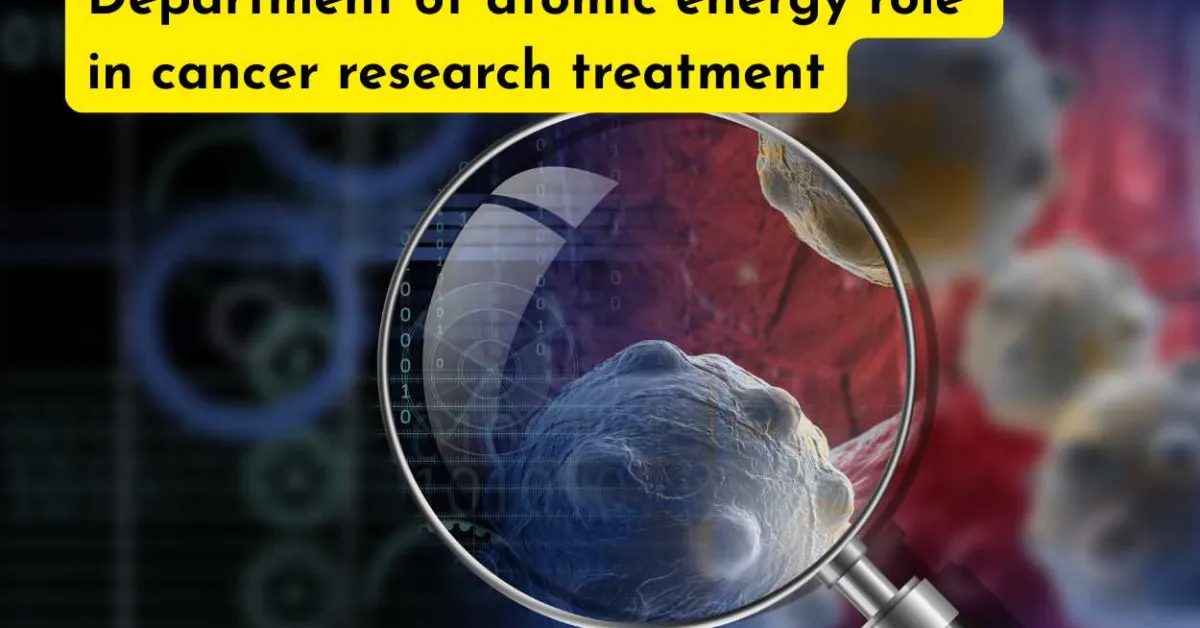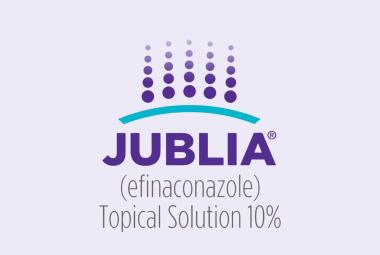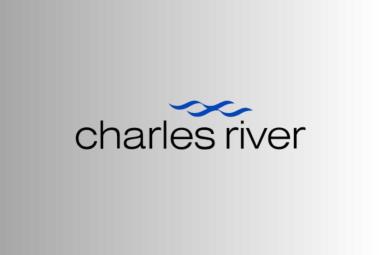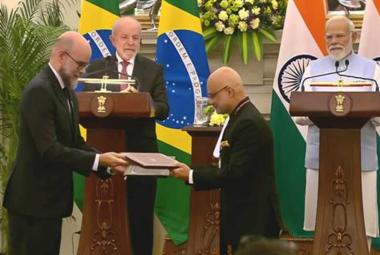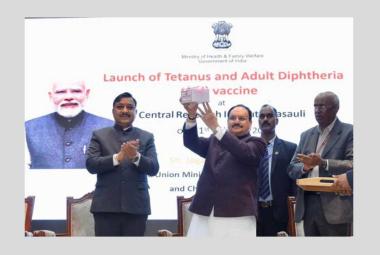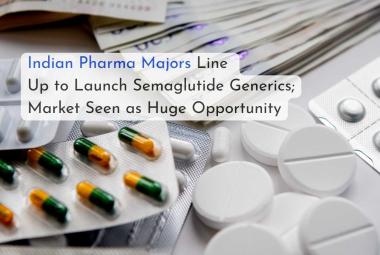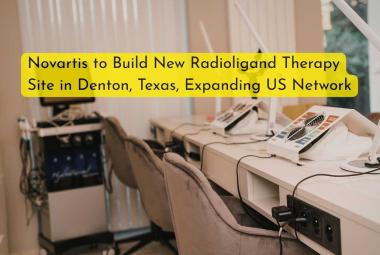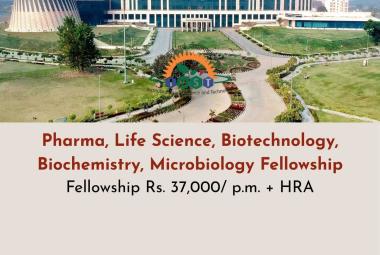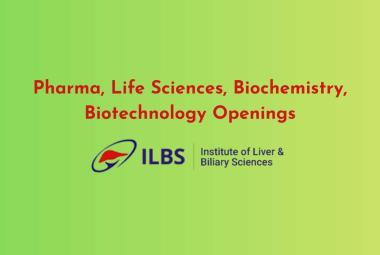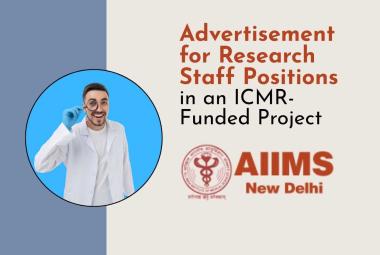The Tata Memorial Hospital under the Department of Atomic Energy is providing comprehensive evidence-based cancer treatment.
The TMC has established 11 hospitals in which 8 are functional/situated at Mumbai, Varanasi, Vizag, Sangrur, Mullanpur, Guwahati and Bhubaneshwar and 3 are under construction. TMC being a premier cancer centre in the country, provides leadership in guiding the national/international policy and strategy for cancer care by
▪ Promoting outstanding services through evidence – based practice of oncology
▪ Commitment of imparting education in cancer to students, trainees, professionals, employees and the public
▪ Emphasizing on research that is affordable, innovative and relevant to the needs of country.
Over the past few years, Department of Atomic Energy (DAE) has developed several key nuclear medicine ligands and targeted therapeutics towards national effort against cancer, especially in the areas of advanced treatment and research. To cater the demand for import substitute radiation-medicine in India, Department of Atomic Energy (DAE) has developed PSMA-617 as import substitute, for use in prostate cancer therapy. The in-house developed nuclear medicine ligand, 177Lu-PSMA617 is regularly being supplied through BRIT to hospitals pan India. Recently, DAE has also developed another nuclear medicine ligand, PSMA-11, as an import substitute, for production of 68Ga-PSMA11 to be used in diagnosis of prostate cancer. In addition, DAE is focusing on the development of DOTA-TATE, as an import substitute for production of 68Ga
DOTA-TATE used for diagnosis of neuroendocrine tumors. New bifunctional bisphosphonate ligands DOTA-SCN-BP and NOTA-SCN-BP have been prepared, radiolabelled and are under investigative clinical trial for their efficacies towards early diagnosis and therapy of skeletal metastasis. DAE has also developed synthesis protocol for affordable, sestaMIBI regularly used as 99mTc-MIBI for heart imaging.
The Department of Atomic Energy (DAE) is working towards the development of targeted chemotherapy for human triple-negative breast cancer. For treatment of neuroblastoma, a targeted drug delivery system “MIBG conjugated doxorubicin” is developed, which significantly reduces side effects on heart.
The Board of Radiation & Isotope Technology (BRIT), an industrial unit under the Department of Atomic Energy produces and supplies a wide range of radioactive products (sealed and unsealed radioactive sources) to hospitals across the country for management of cancer, details of which are given below.
BRIT fabricates and supplies sealed radioactive sources containing the radioisotope Cobalt-60 for use in teletherapy machines towards treatment of various malignant tumours. ~10-12 numbers of Co-60 Teletherapy sources are fabricated and supplied to various hospitals by BRIT every year. Iodine-125 and Ruthenium-106 based brachytherapy sources are also supplied for treatment of cancers of eye, cervix, prostate etc.
The Varibale Energy Cyclotron Centre (VECC) is one of the R&D unit under DAE developed the proton beams from 30 MeV Medical Cyclotron Facility (MCF) at Chakgaria is producing radioisotopes / radiopharmaceuticals, which are used for cancer diagnostics and are being delivered on regular basis to various hospitals/ Nuclear Medicine Centres. Commercial production and supply of Radiopharmaceuticals, 18F Sodium Fluoride (for bone scanning), and Gallium-68-PSMA (for diagnostics of Prostate cancer) have been started.
In Department of Atomic Energy (DAE), extensive research is focused on the development of indigenous nuclear medicine ligands for the treatment of complex and therapeutically resistant cancers like Neuroendocrine tumor (NET), Pancreatic ductal carcinoma (PDAC) and Triple negative breast cancers (TNBC). In this pursuits, research and development work is going on to develop targeted/precision therapeutics to cancer with significantly lower side effects. Therapeutics are developed at preclinical levels to target specific mutations or higher dependency on specific organelles.
Some of the achievements and advancements in treating complex cancer by TMC are:
• National Facility for Hadron Beam Therapy at ACTREC
• India's first homegrown CAR T-Cell therapy for cancer treatment
• PREVALL – First and only oral suspension of Mercaptopurine used in the treatment of Acute Lymphoblastic Leukemia developed by TMC, DAE.
Breakthrough Nutraceutical AKTOCYTE by the Department of Atomic Energy set to Transform Cancer Care
• RANS-ARTERIAL Radioembolisation Using Indigenously Sourced Y- 90 Microspheres (BHABHASPHERES)
• Largest Radiological Research Unit (Therapeutic Nuclear medicine unit)
Within DAE, active collaborations between Bhabha Atomic Research Centre (BARC), Board of Radiation and Isotope Technology (BRIT) and Tata Memorial Centre (TMC) are ongoing for developing nuclear medicines and targeted medicines. Currently, several in-house developed nuclear medicine ligands are used for the diagnosis and therapy of thousands of cancer patients at hospitals pan India. BARC, in collaboration with Tata Memorial Centre (TMC), has also developed chlorophyllin based nutraceutical tablets to reduce the long-term side effects of radiotherapy in pelvic cancer patients.
National and International collaborations for cancer research within the DAE and the details of key outcomes of these partnerships:
Participation in Collaborative Programmes involving the R&D units of DAE
DAE has remained in the forefront of R&D and production of a variety of nuclear medicines for supply to hospitals and nuclear medicine centers across the country, rendering the treatment in an affordable manner. However, the cost of the treatment is majorly dented by the import cost of the “targeting ligands”, one of the key components of nuclear medicines. DAE has been working to indigenize the synthesis and development of nuclear medicine ligands, thus playing a major role in making the treatment cost–effective to the general public. To augment the radio-isotope production capacity, efforts are underway in setting up new isotope production reactor. BARC also collaborates with different hospitals and nuclear medicine centres like AIIMS (Delhi, Bhubaneswar), PGIMER (Chandigarh), JIPMER (Puducherry), KMCH (Coimbatore), Jaslok Hospital (Mumbai) etc. for bringing the affordable healthcare in nuclear medicine sector to the people of the country.
In order to ensure that the products for cancer therapy more affordable to the general public, BRIT ensures that its products are reasonably priced much below that of equivalent imported products.
TMC has initiated and planned a strategy for making advanced cancer therapies more accessible and affordable to the general public in the country through National Cancer Grid. At present 382 members / organizations are connected with NCG which is providing treatment to approximately 8,50,000 new cancer cases. The NCG has potential of massive and far-reaching impact to cover the large number of general public in the country.
Variable Energy Cyclotron Centre (VECC) a unit under Department of Atomic Energy is also engaged in the development of first indigenous 18 MeV Medical Cyclotron (MC18) in India in collaboration with BARC. With this indigenous development the cost of production of radioisotopes will be reduced and will be more accessible and affordable to the general public.


